 No man or woman is going to enter the real estate profession with the mindset that it would be nice to do well in their new career. To be a success in this business means to be selling a lot homes, and leading plenty of homebuyers to buying homes as well. Done to the right extent and that can mean a very lucrative career and earning a very comfortable living for themselves and their family. That is going to be the aim for all of them, and it will still be the aim many years later if they continue to work as a real estate agent in Canada.
No man or woman is going to enter the real estate profession with the mindset that it would be nice to do well in their new career. To be a success in this business means to be selling a lot homes, and leading plenty of homebuyers to buying homes as well. Done to the right extent and that can mean a very lucrative career and earning a very comfortable living for themselves and their family. That is going to be the aim for all of them, and it will still be the aim many years later if they continue to work as a real estate agent in Canada.
All of that is MUCH easier envisioned than done, however, and that’s primarily because real estate is as competitive a business as any. Anyone who is newly licensed as a realtor will quickly come to see that there are too many realtors in the business and that’s been the case for darn near 30 years now here in Canada. There is never going to be enough business to go around and have all the agents be satisfied with what they’re able to secure for themselves. You want to grow real estate business, but all of your competitors do too.
So how is it that some realtors always seem to do better than others? Is it mostly a reflection of their level of hustle and determination, or is there something more to it? In truth a lot of it has to do with real estate marketing strategies, and the successful realtors are ones who are identifying and utilizing the best ones most effectively. There are more immediate ways to increase real estate sales, and among them is using paid real estate leads like the service we make available here.
Some may want to argue we are not the best real estate lead company in Canada, but what we can tell you is that our service is the equal of any when it comes to giving agents leads on new real estate clients. The proof is certainly in the pudding there, and you can have a look at our testimonials if you’d like to see that for yourselves. But that’s not where our focus is going to be this week, and instead we are going to look at the 100 best approaches to real estate business development.
It’s a big number, so let’s get right into it.
Proactive Realtor = Successful Realtor
The one overarching theme in all of this is the understanding that as a realtor you need be super proactive in promoting yourself, and when you can do that with as many pokers in the fire you’ll be best positioned to have the success as a real estate agent that you envision for yourself. What will follow here are real estate business tips in a long list but each of them has made the list because they’ve brought new business for realtors in the past and can do the same for you.
- Have Your Own Website
A realtor having their own website is crucial for their success in real estate success nowadays. Fortunately it’s not difficult to make one yourself using a website builder for realtors, or it shouldn’t be too expensive to have a web designer put a basic one together for you. A website really is essential if you want to grow a real estate business.
- Start Blogging
There is research indicating that content marketing via your own blog costs 62% less than traditional marketing, while generating 3 times as many leads at the same time. It is true that agents are always missing out on leads because they don’t yet see how blogging generates real estate leads. With every blog post you publish, Google has more content to index and connect to your website for higher search engine page rankings (depending on other factors too). You will also be establishing yourself as the expert, building trust, and staying top of mind with prospective clients.
- Build your Mailing List
Real estate is all putting yourself and keeping yourself in front of prospective clients. Building your mailing list is a great way to do this. With real estate lead magnets you can give prospects an incentive to subscribe to your mailing list so you can stay in constant contact.
- Leverage your Listings
The reason established agents focus on listings is because listings generate more leads. Realtors who do well with strategic planning have the ability to turn every listing into multiple new leads. You can do this too, and especially if you make your listings especially visible to others who are considering listing their home.
- Generate Passive Leads
Prospecting is great, but the drawback is that it is time consuming. With passive marketing you can make the leads come to you instead of always chasing them down yourself.
- Establish Your Marketing Plan
It is absolutely essential for every new agent to have a marketing plan. You may have a general idea of how you’re going to reach clients, but you will still need a documented plan so that you can hold yourself accountable. Starting with this can be as simple as having a downloadable marketing plan workbook.
- Be Active with Social Media
Social media is increasingly one of the best ways to market yourself as a realtor. You will need to be selective about which platforms you are most active on, but there is so much potential in advertising yourself as a realtor on FaceBook and other social media platforms.
- Recession-Proof Your Income
The real estate market is always cyclical, and so realtors always need to have a plan for the next inevitable market downturn. It does require planning to survive and thrive in real estate when the housing market dips, but if you do your research and prepare well in advance it’s possible. The best approach is to start creating your recession-proof income streams before the market gets rough.
- Offer Property Tax Appeals
Property tax appeals may well be the single best way to recession-proof your real estate business. In down markets you can save your clients serious money on their property taxes while earning a solid commission for your efforts. What property tax appeals involve is presenting a CMA to your local taxing authorities suggesting the property is not as valuable as the authorities have assessed it to be.
- Buy-and-Hold
It is possible to grow your real estate business through more than just transactions. How about growing your real estate investment portfolio? Buy-and-holds present really good opportunities as real estate investments. Money is made through appreciation, rental cash flow, having tenants pay down mortgage debt, and generous tax breaks. In the event your only property is your residence, maybe this is the year you buy your first long-term investment property.
- Skip X for Social Media
X, formerly known as Twitter, isn’t a good choice for your social media marketing in real estate focuses because it requires more time and effort than most other platforms and has the shortest shelf-life per post. You may still want to have a profile to boost credibility with a certain client demographic, but by and large real estate agent are not generating real business on the platform.
- Create a Renter-to-Homeowner Program
A Renter-to-Homeowner Program is among smart real estate marketing strategies. It’s also comparatively cost-effective and an efficient use of prospecting time. What you will be doing is partnering with local apartment communities, offering to cover the lease-break fee for anyone who buys a home with you as their agent, and then going over those communities to make it likely that residents there see you as their agent of-choice.
- Tackle REOs
Foreclosures are always going to occur when the market declines. And those foreclosures are liabilities for the banks they revert to. Asset managers will aim to move these Real Estate Owned (REO) line items as quickly as possible. What you can do is establish connections with asset managers so that you’re the agent that is foremost on their minds when they begin to receive foreclosed properties.
- Host a Client Appreciation Event
Client appreciation events come with a significant cost when used as a means of real estate business development, but they are an effective way to earn referrals and repeat business. The most important thing about your event is to make it memorable. Aim to give your clients memorable experiences and they will be more likely to recommend you to others they know who are also looking to work with a real estate agent.
- Send a Thank-You to Client Offices
When you get a referral, don’t send a gift card to your client as a thank you. Do something like send them a bouquet at work to instantly generate buzz and very possibly earn another referral. Do this and when your client’s coworkers ask about the occasion, they will speak highly of their awesome real estate agent. Doing the same for your clients on closing day is also a possibility.
- Give Closing Gifts to Generate Referrals
Closing gifts are also a way to generates referrals, and the best ones are personalized so that clients’ friends and families will be asking ‘where did you get that?’ When they do, you will be brought up and this can be a way for you to generate real estate leads.
- Help Buyers with Credit Repair
Lenders become more hesitant to lend money when markets slump, and when this happens they increase their credit requirements. This can make it difficult for buyers with credit issues to qualify. What you can do as part of real estate business tips is offer credit repair services as part of your real estate business. You’ll be helping these buyers, earning a service fee, as well as building a relationship with new buyer clients.
- Monetize Your Real Estate Website
With placed advertisements and other means you can monetize your website and have it be much more than just a real estate lead generator. There are many ideas you can look into for turning your website into its own income stream.
- Create an eBook
There is a proven way to establish yourself as a real estate expert, build trust with your audience, and create a passive income stream. It is by publishing an eBook, and if you are able to focus on a real estate niche then your book can have maximum effect. Perhaps something specific about real estate investing (tax liens, wholesaling, flipping, etc) or something local (like a guide for those moving to the city).
- Offer Online Courses
This one is similar to the eBook suggestion, and with online courses you can establish yourself as the authority, build trust, and possibly create a passive income stream. You can expect them to take more time and effort to launch, but the tradeoff is that you can also charge more than you would for an eBook.
- Design Digital Products
Digital products like templates, workbooks, and designs are another option for creating passive income for years into the future. Consider expanding your real estate business by selling digital products of your own.
- Recession-Proof Expenses
We’ve talked about the need to have the foresight to prepare for the next recession, and it should also involve making your expenses recession-proof too. Your budget won’t look the same during a recession as it does during a strong market, so start making adjustments now so that the next recessions isn’t as negatively impactful for you.
- Build a Local Business Directory
The best real estate agents will come to be known as ‘knowledge brokers’. Building a local business directory on your website confirms your status as a local expert and knowledge broker. Start with the businesses your clients need most often (plumbers, electricians, locksmiths, etc), and notify each business as you add them to create a mutually-beneficial relationship and get your name out there.
- Be a Guest Expert
There are so many ways to establish yourself as a real estate expert and increase real estate sales. Another idea is to be a guest speaker at local colleges and/or give real estate market reports on local TV news or via local radio shows. You may also look into being the guest expert on local podcasts and blogs.
- Focus on Sellers
It has always been the consensus among realtors that buyer leads are easier to get and convert to clients. Seller leads are more of a challenge. But to grow a real estate business, you still want to focus more on sellers than buyers. Sellers always tend to complete faster, and for many reason they are also less of a gamble than buyers. If you’re solely working with buyers, consider a shift.
- Add Property Management to Services
Property management services are a great expansion opportunity for your real estate business. You can cross-promote, gaining new management clients from buyer and seller clients and vice versa. And if you invest the time in finding reliable tenants for your clients’ properties then property management can be a passive management task. In the event of a recession, you can make better-than-normal money from property management services to help offset declining real estate sales income.
- Invest in Commercial Real Estate
Real estate growth hacks can be found all over, and with that understood let’s look at those who have invested in a few residential properties throughout their career. What about making those same investments in commercial real estate? With long leases and purely professional relationships, commercial real estate can often be easier for realtors than residential. The only caution should be if there’s any heading into a market decline; it can be difficult to find new tenants for commercial space in a slow economy.
- Take Advantage of SEO
Search Engine Optimization (SEO) is so important for a realtor’s website and all of their digital marketing promotion efforts. SEO is the key to being found online. Good SEO isn’t something that you can assemble easily, but there are also lots of simple ways you can boost your SEO to gain exposure for your website.
- Be Mobile-Friendly
These days it is of paramount importance that your real estate agent website be mobile friendly. This means that it will display properly if the person who is visiting it is doing so through a smartphone. Most people now use their phones and tablets to search for properties and information about the real estate sales process. If your site isn’t formatted to be viewed on these devices it is not going to be conducive to real estate business development.
- Be Prospecting Every Day
You know you should be prospecting every day, but for a lot of realtors in Canada this is hard to do. But what you can do is try using a daily prospecting checklist and if you need a little extra accountability then it may be a good idea to join forces with a colleague. You can send each other your completed checklists every day to show you’re doing the work and making efforts to build up new clients for a real estate business.
- Invest in Real Estate without Owning Individual Properties
We’ve already talked about growing your real estate business through real estate investments. However, there are going to be those who don’t want the responsibility of actually owning and managing a portfolio of properties. For these individuals it may be better to invest in real estate without property ownership! REITs, ETFs are good examples.
- Set SMART goals
The acronym for SMART stands for specific, measurable, achievable, relevant, and time-sensitive. Need some SMART goals for real estate? There are all sorts of resources out there for you to set smart and realistic goals and then use adhering to them as a means of using your time to the best of your availability when it comes to promoting yourself as a real estate agent.
- Master Real Estate Prospecting Scripts
It’s okay if you’re not entirely sold on the need for real estate scripts. But all it can take is one blown real estate lead to know how dangerous it can be to work without them. If you’ve been around a while, you’ve probably come up with some successful scripts of your own and they’ve likely been revised through trial and error. And if you’re new to the business, give yourself a solid base by getting some clever scripts and adjusting them to best suit your unique personality.
- Be Clear on your Clients
Realtors always do better when they understand their client niche. The more narrow your audience, the more leads you’ll likely to be converting into clients. I know it sounds counterintuitive because you want to cast a wide net, but remember that you’re competing with literally every agent in your market. When you get clear on your clients, you can become the top agent in your niche quickly and easily. Center your marketing plan around your niche.
- Ditch IDX
The property search function on your website will never be as the one for Zillow or Realtor.ca. It’s not beneficial to have clients directed to use your site for property searches. IDX integrations are expensive and largely unnecessary in today’s marketplace. Continue to use your website to establish your brand and show off your market knowledge, but advise your clients to conduct their property searches by other more effective and more streamlined means.
- Recession-Proof Operations
Realtors should be asking how their business operations may change when recessions arrive and stick around. Those who weren’t in the industry during the last recession likely have no idea, so do a little research on recession-proofing real estate operations and get prepared.
- Update your Bio
You will also need to have a real estate agent bio that engages your prospective clients, and if writing is not your strong suit then it makes a lot of sense to hire someone to write a real estate agent bio for you. This is also part of your real estate marketing strategies.
- Establish your Brand
It is all too common for realtors to be relying on their broker’s branding. This isn’t necessarily a bad thing, but what about when you want to change brokers? You may also eventually want to start your own brokerage. For these reasons you need your own unique brand.
- Have a Financial Plan
Like marketing plans, financial plans are often much too loose for realtors and suggesting improvements to them is a part of real estate business tips too. Take the time to document your finances so you know where your last dollar went and where your next dollar will be coming from.
- Improve Your Open Houses
Open houses are usually a good way to sell listings, but they can also be a way to get more real estate leads when you know how to host them more effectively and get people more involved and volunteering their plans with purchases / sales in the real estate market.
- Promote your Testimonials
After every transaction it is best to send the clients a link to leave you an online review. Whether you direct them to Google, your website, or any of the property search sites is up to you. Do whatever is necessary to prompt them to give you a review. It is even better if they agree to being used in your marketing materials, with examples being on your real estate agent website or in social media posts.
- Do New Home Photoshoots
Here’s one approach you can take that almost no one else will – new home photoshoots. Get high quality photos of buyers settling into and enjoying their new home. Not only could this be an additional income stream to grow your real estate business, but you can also ask your clients to tag you when they share the photos online for some free marketing.
- Stay Local
Realtors who really invest time and money into online marketing may start seeing traffic from buyers and sellers all over the world, especially if you are realtor working in a destination city. But that’s often not what you want, as you you mostly want to attract people who might buy or sell in your area. So what you should do is keep the nature of your posts very local and mention your market constantly while also making it clearer that you want to work with local clients.
- Host Free Seminars or Workshops
We can’t stress strongly enough how important it is to establish your expertise, build trust, and engage new prospects. One way of doing this is to host a free seminar or workshop. Topics for first-time buyers, real estate investing, and staging to sell are all solid choices, and this is another good way to increase real estate sales.
- Always Have Professional Listing Photos
In the age of online property searches, your listing photos are going to be a huge part of the first impression made on any would-be clients. They will also be representative of your business. For this reason you should always invest in professional listing photos. If other agents in your market aren’t offering this added service, this also presents a good opportunity for you to differentiate yourself.
- Volunteer
If you have the time and energy to do it then volunteering is another good way to grow real estate business. Volunteering is a great way to establish yourself in the community, meet locals, and get to know your neighbors.
- Work From Public Spaces
Working from public spaces can actually be a way to get new real estate leads. What you can do is have a small sign next to your notebook that says ‘Real Estate Agent at Work – Open for Questions’.
- Have Digital Catalogs
Digital catalogs are exactly what they sound like – catalogs in digital format. You can suggest your client base subscribe to a digital catalog that is branded to your company, promotes your listings, and even includes interesting articles for locals.
- Utilize Recession-Proof Marketing
We already discussed recession-proofing income, expenses, and operations. You should also be working to make your marketing recession-proof too.
- Be Forthcoming with Buyer Questions
There’s a magic question in real estate that is often overlooked by agents. Ask this one question of all your buyers and it will do a lot for growing a real estate business – is selling your current home something you need to do before you can buy?
- Try Social Media Ads
Social media ads are a relatively inexpensive way to reach a fairly large audience, so you should learn how to make them and aim to be unique and creative with yours as you promote yourself as a local real estate agent.
- Get Real Estate Leads from Zillow
Zillow displays For Sale By Owner properties, giving you access to FSBOs you can convert to listings. Homeowners have the option to select ‘Make Me Move’ if they might be willing to sell under the right conditions. This will never be the best real estate lead company in Canada though.
- Be On Top of Expired Listings
Expired Listings are another great seller source. Make sure you have a game plan before reaching out to them, and another good approach tip is to contact them early in the morning the day after their listing expires. You don’t want to chance other agents being in contact with them first.
- Track Your Progress
You want your progress to be measurable when you’re working so hard to grow your real estate business. What you need to be doing is regularly reviewing and documenting your income, expenses, and habits to keep yourself on track.
- Consider Drone Photos
Using drones for real estate photography is really popular these days, and for obvious reasons with the way it lets realtors get an on-high vantage point of the properties they have for sale. For high-end listings, drone photos can make all the difference in the world.
- Have a Lead Follow-Up Plan
It’s fairly common for real estate agents to not have the best track record of following up with leads. Make sure you have a concrete plan for following up on all the real estate leads you generate, and especially if you’re paying for the best real estate lead generation services in Canada. This needs to be true of cool, warm, and hot leads equally, and of course you’ll also need to know how to make those determinations.
- Sponsor a Local Team, Event, or Project
As a real estate professional it will always benefit you to be involved in the community. Sponsoring a local sports team, event, or community project gives you a chance to make a difference in the community while promoting your business.
- Educate Clients
Buyers and sellers are better informed today than ever before, but each of them is going to have gaps in their understanding of the real estate market and how their property factors into it. Give your clients the educational resources they need to make informed decisions, and they will thank you with repeat business and referrals. A blog on your website is an ideal resource for this.
- Help Homeowners Avoid Foreclosure
Economic fluctuations can put homeowners underwater on their mortgages, behind on their payments, and unable to catch up. Some may need to consider foreclosure, but as a real estate agent you can help them. Inform them of refinancing options that might help or explain the concept of a short sale to them. If they can’t save their home, at least they can have you helping them avoid having a foreclosure on their record. This goodwill gesture can lead to new real estate leads in the future.
- Give Out Monthly Market Updates
Monthly market updates keep you top-of-mind with your clients, allow you to provide valuable information, and with them it is possible to generate referrals and repeat business. The key is to make the market updates interesting and relevant to individual buyers and sellers. Writing quality market reports and getting them into the hands of the right individuals can be a decisive part of effective real estate business development.
- Utilize Automation
To grow your real estate business, you need to free up some of your time and/or money. Automation is perfect for this. You can automate your social media marketing through tools like Hootsuite and automate your newsletters and email drip campaigns through services like MailerLite.
- Request Better Fee Splits
A good way to grow a real estate business is to ask a broker for a higher fee split as a means of quickly increasing your profit margins.
- Build a Passive Income Stream
Passive income can be very helpful for commission-based real estate professionals. When you are making money residually it can allow you to do more with your free time and weather market downturns like we discussed earlier. And it’s not difficult to do! It just takes an investment of time and/or money on the front end to reap the rewards on the back end.
- Help Investors Find Superior Deals
The great thing about working with investors is that they often tend to be repeat clients, regularly buying and selling properties. To stay top-of-mind with investor clients, send out a once-a-month newsletter full of the best investment deals currently on the market.
- Be Responsive
Prompt responses to client inquiries are a must in the real estate business. For any agent who struggles with this because they are just so busy it may be a good idea to invest in a 24/7 messaging service that can reply to your clients immediately so they never feel neglected.
- Listen to Podcasts During Drive Time
Real estate agents tend to be in the car a lot. Make that time more productive by brushing up on some quick real estate lessons. There are many good podcasts for real estate agents that you can listen to during the times you’re driving between appointments.
- Plan Your Team’s Growth
Real estate agents often find their hands are increasingly too full as they become more successful in the business. If that’s you then it may be time for an admin, a buyer’s agent, or a social media manager. Take some time to think about your personnel needs for the coming year.
- Maintain your CRM
Your CRM (Client Relationship Manager) is the lifeblood of your business. It tells you who you need to follow up with and when. The good news is that you don’t need a fancy software subscription for your CRM. You can buy a simple CRM on Etsy for under $10 or even make your own.
- Find Success as a Part-Time Agent
For some working in real estate part-time makes sense because they have other means of income or have transitioned later in their working life and have build a base for themselves already. If this is you then you should tailor your marketing efforts accordingly and advertise yourself as a realtor who is more available to be working with their clients because of your working arrangement in the profession.
- Boost Social Posts
Realtors should be working with their social media strategies for real estate and trying different approaches to see what works best for generating real estate leads. One thing you can try is to ‘boost’ a few posts for as little as $5. This is slightly different from running social media ads, but can be just as effective.
- Publish Sponsored Posts
Sponsored posts are what bloggers use to make money from posts. All you need to do is find someone willing to pay for a mention and backlink from your site to their site. Backlinks then boost your credibility on Google. If you can establish a successful real estate blog you can make anywhere between $25 and several hundred dollars per post plus getting maximum visibility as a means of generating new real estate leads.
- Guide Local Experiences
If you are very familiar with your area why not offer guided tours and locals-only experiences to outsiders? This works especially well if you live in a tourist destination and in doing so you may even find an out-of-town buyer who wants to buy property there and will choose to work with you as their real estate agent.
- Rent Out Tools and Equipment
If you have the equipment then renting out tools and equipment can be a way of making good connections as a real estate agents. This works particularly well in a slow economy when people are more inclined to do the work themselves than to hire professionals for home improvement jobs.
- Provide Video Tours of Listings
Video is an excellent medium for real estate sales and as an agent you can re-purpose your videos in several different ways. Examples can be posting them your YouTube channel, embedding them in your website, and sharing snippets on social media.
- Offer Staging Services
Staging properties can help them sell faster and for more money. If you can offer staging services as part of what you offer as a realtor that can be a convincing point for anyone who’s in the process of deciding which realtor they’re going to work with as they prepare to sell their home and know having it look its best is important.
- Try Webinars
If seminars are working for you, but you want to reach a wider audience then you cantry webinars. It’s the same information, but using a virtual platform instead of presenting face-to-face.
- Read new Books
A successful real estate agent is continuing to learn all the time. So make the effort to read a few new industry books over the coming year, and try to determine which types of these books are best for helping you grow real estate business and learn new real estate marketing strategies.
- Increase Your Marketing Budget
If you want to grow your real estate business then you’ll want to increase your marketing budget to get your business more exposure. Anytime sales are slow this is when you’ll want to up your marketing budget expenditure. You can gain a greater market share by pushing forward with your marketing budget.
- Try Inexpensive Mailers
This is another one of our real estate growth hacks. Try to create a mailer that is attractive, unique, and engaging but won’t cost too much to print in volume and have sent out to prospective clients that you have become aware of as part of real estate leads.
- Go With a Website Facelift
If your real estate agent site has become outdated then you should consider giving it an upgrade. Website design mistakes are incredibly common and could be costing you business. An attractive and engaging site that is up to the latest standards is really important.
- Upgrade Imaging
The same can apply for the imaging you’re using on your website and your social media. With so many royalty-free stock photo sites available, you have plenty of free, professional photos you could be using instead.
- Make it Easy for Content to be Shared
We recommend an easy-to-use plugin called Social Warfare for making it easy for site and blog visitors to share content you’ve made available. And the more social shares you get, the more exposure you gain for your business.
- Improve Social Media Engagement
When it comes to social media in real estate just posting your listings and leaving it at that isn’t going to be enough to get the new-client traction you want. You won’t be doing real estate social media right if this is your approach. It’s all about engagement. Ask questions, post polls, and tell people to tag a friend who would be the perfect owner for your new listing. You want to increase shares, likes, and comments.
- Always Ask for Referrals
Real estate agents should be confident enough to always be asking for referrals. They might ask their contacts if they plan on moving in the next year or so, but what they forget to ask is ‘Who do you know who might be moving this year?’
- Be Available
The reason real estate teams are so successful is that there are more people who can be available for moments-notice showings. If you’re getting so much business that you can’t be available for your clients, that’s a good indicator that it’s time to add another person to your business. If you want to increase real estate sales you need to make every effort to be as available for your prospective clients as possible.
- Invite Neighbors to Open Houses
If you want to get the word out about your open house and uncovering new lead at the same time then it is a good idea to invite people in person. Of course while you’re inviting them, ask if they (or anyone they know) might be planning to move in the next year or so.
- Outsource Tasks as Needed
A realtor’s scope of duties often quickly becomes too big for just one person, especially if their PREC has become successful. Understand the time when you need to hire an executive real estate assistant! Virtual Assistants (VAs) are a cost-effective option for getting professional administrative help.
- Give Video Tours of Neighborhoods
Realtors can mount their smartphone to the dash of their car and drive around neighborhoods narrating the sites as they go. This gives prospective buyers a unique insider peek into each neighborhood, introduces you as the local expert, and creates some great content that can be indexed for better real estate website SEO.
- Under-Promise & Over-Deliver
No matter how well you perform, if you set your clients up to expect better, they will be disappointed. Try under-promising and over-delivering as an equation that is more likely to create happier clients and ones that will recommend you as a means of getting real estate leads.
- Celebrate Housiversaries
Here’s a quick, easy, inexpensive way to surprise past buyers and make them see you in an even more favorable light as a good realtor: send a Happy Housiversary Card every year to celebrate the anniversary of their home purchase.
- Create Compelling Listing Descriptions
Like listing photos, listing descriptions go a long way to swaying buyers favorably on a property before they even see it. When a listing description is written well it sells the lifestyle more than it does the property. Describe all the things the buyer could do in the home when they’re living their best life.
- Try 3D Home Tours
3D home tours are a good way for online house hunters to get a feel for the layout and size of a home before they can go through it in person. Offering 3D home tours is also a great way to differentiate yourself from other agents in your market.
- Share Social Posts to Groups
You can gain so much more exposure with your social media posts when you share them on group pages. Neighborhood groups are the ideal locations because neighbors are going to have more natural interest in local real estate market news, new listings, and new neighbors.
- Create Property Landing Pages
Tools like LeadPages have made it easier than ever to create quick, custom landing pages for individual properties. Try this great tool for your listing presentations.
- Focus on Marketing Activities with the Best ROI
It is not advisable to devote time to marketing activities that don’t produce good returns on your investment. Track your ROI by listing your marketing activities, determining the annual expense of each, and documenting how much annual income comes from each method. Then divide the income by the expense to calculate the ROI of each activity.
- Add 360-degree Photo to Google Street View
With the Google Street View app, you can create your own 360-degree photos of the ground floor of your listings and upload them instantly. This gives Google more indexable content for the property address, and this 360 view will be viewable on Google Images and Google Maps when someone enters a Google search for that address because they’d like to see it.
- Wear a Name Tag
Identify yourself when you’re out and about. This could be a name tag with your profession when you’re working and a branded polo, hoodie, or tee shirt when you’re not. This invites people to ask about the market because they will know you’re a working real estate industry professional.
- Have Daily Plans
Good time management is essential for realtors and improving yours is always going to be central with real estate business tips. You are solely responsible for your schedule. Having a daily plan helps immensely. Try reading The Miracle Morning for Real Estate Agents to learn more about the power of planning your day.
- Focus on Specific Price Ranges
It is natural to be more in pursuit of higher-value properties because they provide higher income with fewer transactions. This is why so many agents want to be in the luxury real estate niche. But when markets slip, luxury listings suffer. In down housing markets you may actually be better off with lower-range listings.
- Offset Marketing Costs
Growing profit margins are key to growing your real estate business. You can reduce your marketing budget while growing your reach by offsetting your marketing costs. This is best done by partnering with other industry companies. For your events and seminars, suggest partnering with lenders, title reps, escrow officers, inspectors, and appraisers and split event costs. For your digital and print marketing, you can include links to your partner providers in exchange for a portion of the marketing cost.
FAQs
What are some effective ways to generate leads for my real estate business?
Using a paid real estate lead service is often the most effective way to get real estate leads, but you can also try networking with homeowner’s associations and using traditional advertising means like billboards and mailers sent out to clients at their addresses.
How can I improve my online presence as a real estate agent?
The best way to improve your presence is to have a well-designed realtor website that features regularly updated content and is SEO optimized so that the site comes up high in search engine results when people search for agents in your specific area. The second approach you will want to use is to be active with social media platforms and sharing content and posts there that make you more well known as a local realtor who is eager to work with new clients.
How important is it to have a niche in the real estate market?
It is only more important to have a niche in the real estate market if you are working as a realtor in an area of the country where there are many different types of listings on the market at all times and the large population base there means that there are many other local realtors working there too. It is less important if you are realtor working in a smaller market, but it may still be something you want to consider.
How can I use content marketing to grow my real estate business?
The key in content marketing for real estate is first of all to have good and original content coming from you. If you are not able to write it yourself then you should invest in having someone create real estate industry-related and local-market specific content for you and then have it published on your website with a blog or featured articles. You should then be having the content be inbound linked to through other areas on the web, and especially from social media platforms. A CMS for a real estate website blog is an excellent choice here.
How can I build and maintain a strong client relationship?
The most effective way for realtors to build and maintain strong client relationships is to be in regular communication, but to do so in a genuine manner that makes it clear that your interest is less in securing business for yourself and more in honestly helping people have more success with the sale or purchase of real estate. Communications should be timely, but not done with too much frequency. And you will also want to consider making an effort to keep notes about clients and specifics about them, and use this information when it makes sense to do that. This really helps to keep the communications genuine.
You will also want to include anything that you’ve done recently to further cement you skillset and knowledge about real estate, as this signifies your dedication to your profession and reminds them of why they should choose to work with you again. Your aim is to grow real estate business, and having this type of approach to client communications is very much in line with doing that.
 The way a funnel is going to work is having a space constriction and gravity working to ensure that some type of liquid can be taken at volume and effectively moved into a specific location as quickly and thoroughly as possible. A sales funnel is going to be more a figurative use of the term, as there’s nothing liquid about prospective customers and you won’t need to know of their viscosity. Sales funnels in real estate are dependent on new leads being added to them and this is why real estate lead generation is so important.
The way a funnel is going to work is having a space constriction and gravity working to ensure that some type of liquid can be taken at volume and effectively moved into a specific location as quickly and thoroughly as possible. A sales funnel is going to be more a figurative use of the term, as there’s nothing liquid about prospective customers and you won’t need to know of their viscosity. Sales funnels in real estate are dependent on new leads being added to them and this is why real estate lead generation is so important.




















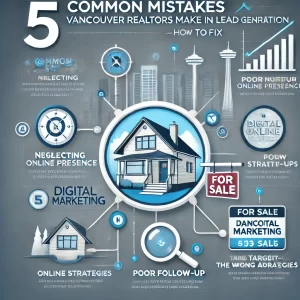





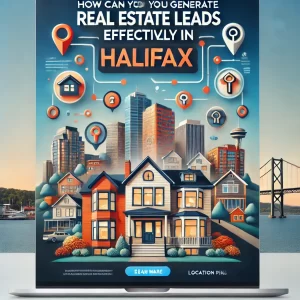


























































































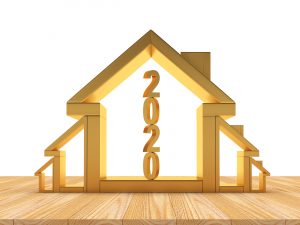























































































































































































































































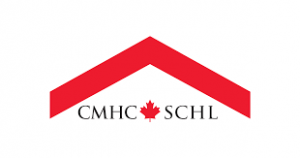












 The
The 






 Ever wanted to know what the perfect text message is to send a new lead? Or maybe the best initial email? Also, two great ways to overcome the most common objections.
Ever wanted to know what the perfect text message is to send a new lead? Or maybe the best initial email? Also, two great ways to overcome the most common objections. Although no two agents are identical in how they get organized and conduct their business. Each will have a unique set of needs and preferences that dictate what real estate apps they use. Having said that, there are several smartphone, tablet, and desktop apps real estate agents and brokers should try that they may not have heard of yet. We’ve listed dozens of the top-trending ones for 2016 below.
Although no two agents are identical in how they get organized and conduct their business. Each will have a unique set of needs and preferences that dictate what real estate apps they use. Having said that, there are several smartphone, tablet, and desktop apps real estate agents and brokers should try that they may not have heard of yet. We’ve listed dozens of the top-trending ones for 2016 below.


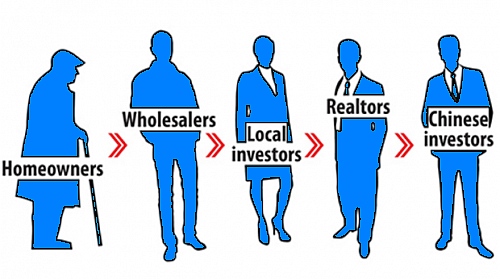








 to your colleagues to see your competition soar! jk 😉
to your colleagues to see your competition soar! jk 😉















 Other agents can provide good tips for new agents, but the tips noted below are taken from a client perspective.
Other agents can provide good tips for new agents, but the tips noted below are taken from a client perspective. Do you often feel neglectful for not sending your prospects and clients emails to strike up more business?
Do you often feel neglectful for not sending your prospects and clients emails to strike up more business? Have you ever sensed that the person you are speaking to isn’t registering hardly a word you are speaking of?
Have you ever sensed that the person you are speaking to isn’t registering hardly a word you are speaking of? 




 Good news! The current buying trend is that the average first-time home-buyer is spending more!
Good news! The current buying trend is that the average first-time home-buyer is spending more!

